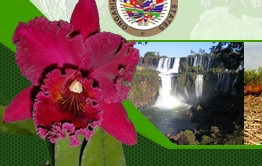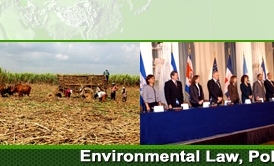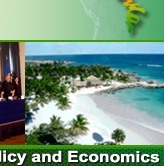|
|
|
|
|
|
|
|
||
|
|
|
||
 |
 |
 |
|
|
|
|
||
|
|
|
|
|
|
|
|
||
|
|
|
||
 |
 |
 |
|
|
|
|
||
|
Renewable Energy Alternatives for Water Delivery Systems Presented By: Mark Lambrides from the Unit of Sustainable Development and the Environment of the Organization of American States Date: June 15, 2000 Summary: The Renewable Energy in the Americas Declaration was signed by twenty LAC countries and is sponsored by USAID and OAS. OAS-OSDE assumed the role of REIA Technical Secretariat in 1999 to reform energy policy, provide linkages between the public and private sector, and to prepare and manage GEF-assisted projects. Energy is a key component in the water delivery and treatment chain. The communities with central power systems also have water supply systems, so for them, the key issue is ensuring that each system is efficient and environmentally sound. For rural communities that lack adequate water and electricity, the key issue is finding sustainable options for water pumping and treatment. Hydropower has traditionally been the most common means of electricity generation in Latin America. But, technology and policy changes are causing increasing use of natural gas and oil. The region, however, has significant renewable energy alternatives, such as biomass, wind, geothermal, and small hydro. The barriers to grid-tied renewables are: policies and regulations that favor low capital costs and low short run marginal costs, environmental impacts are not considered a cost factor, and the infrastructure is well established for conventional technologies. The presentation discussed the advantages and disadvantages of the renewable energy alternatives. Comments: Short minutes and the power point presentation are on file. These provide only a skeleton of the presentation as described above.
|
©
2005 Office for Sustainable Development and Environment -
Organization of American States. All
Rights Reserved. |